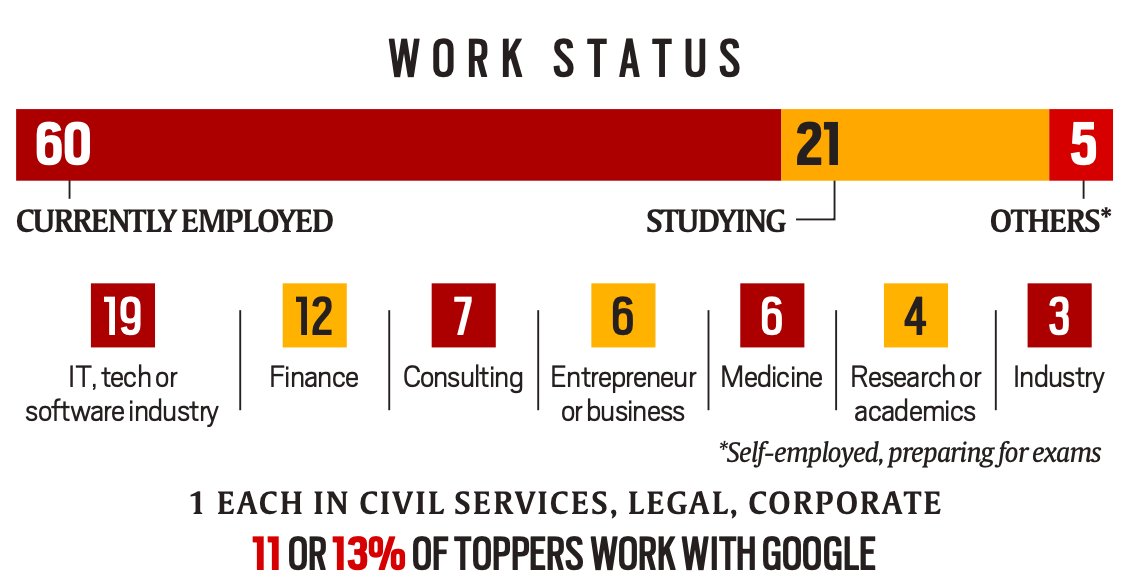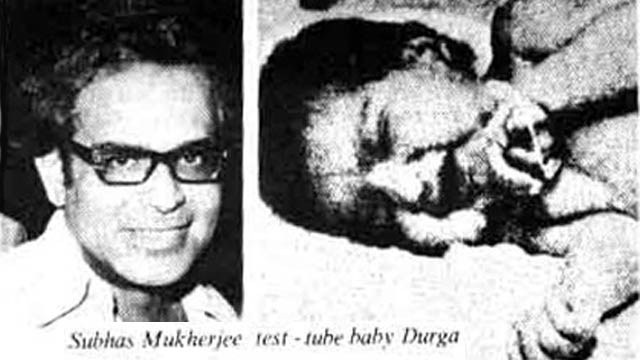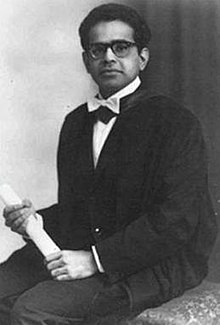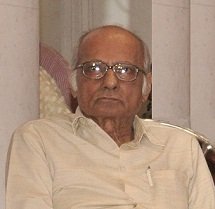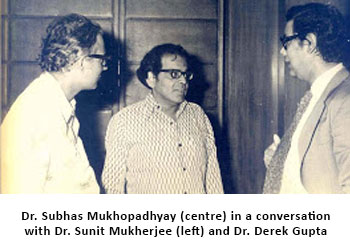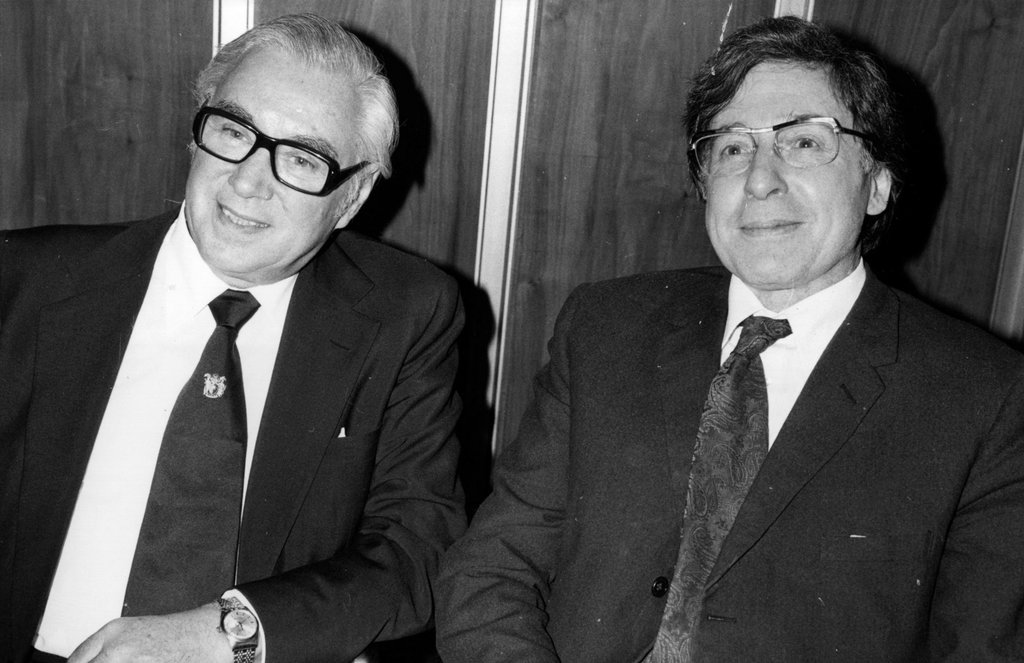(2/n)
At a time when varsity cut-offs have hit 100, @IndianExpress tracked down a generation of Board exam toppers between 1996 & 2015 to find out the consequences of a convention that celebrates a few students every yr.
Our 3-part deep dive: Tracking India's Toppers 👨🎓🥇
🧵(1/n)
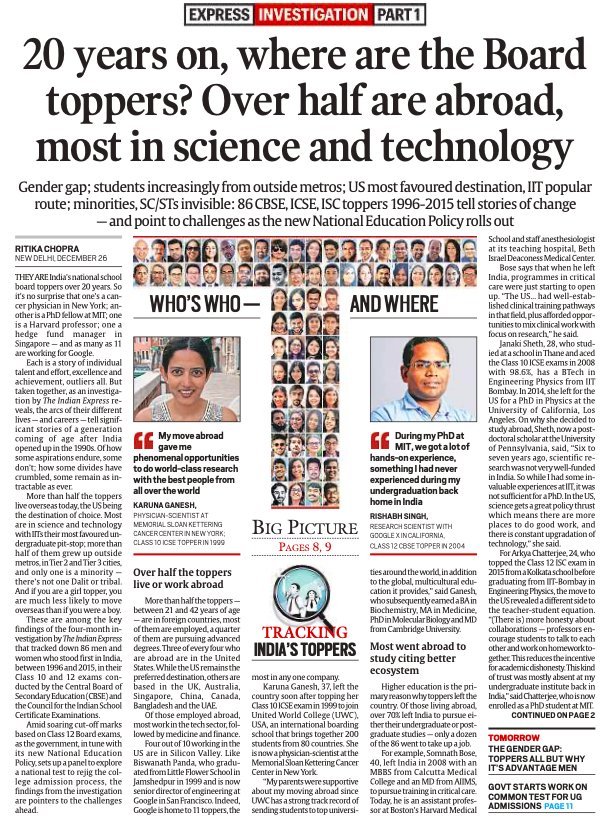
(2/n)
Three of every four who are abroad are either working or pursuing higher education in USA. Others are in the UK, Australia, Singapore, China, Canada, Bangladesh and UAE
(3/n)
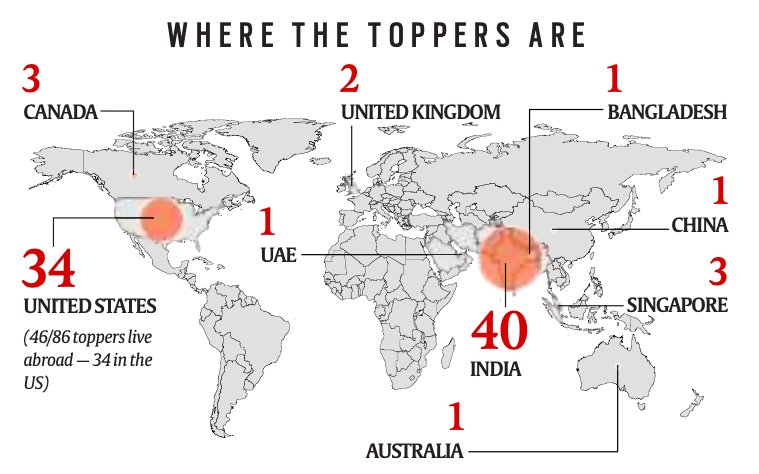
Like Rishabh Singh (34), who topped the CBSE Class 12 exam in 2004 and is now Research Scientist with Google X.
@Google is home to 11 toppers, the most in any one company!
(5/n)
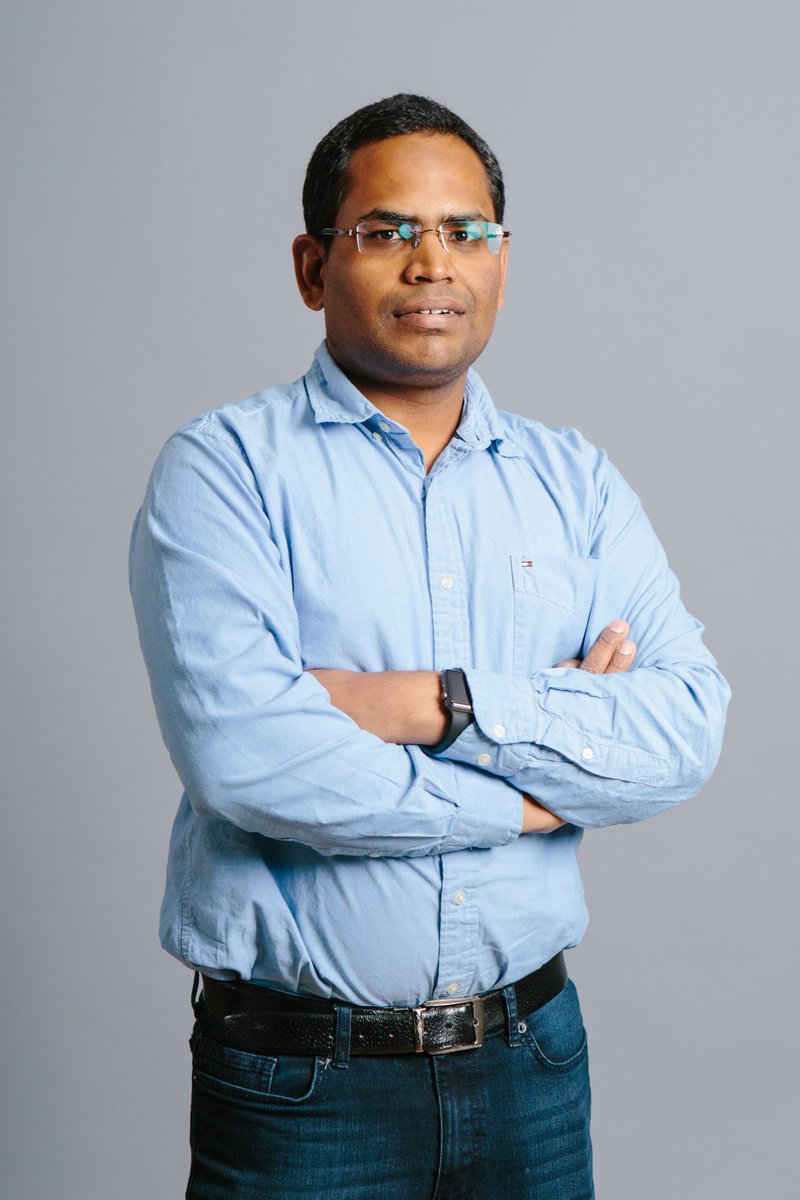
Among those who studied engineering, 6 out of 10 did so at an IIT.
(6/n)
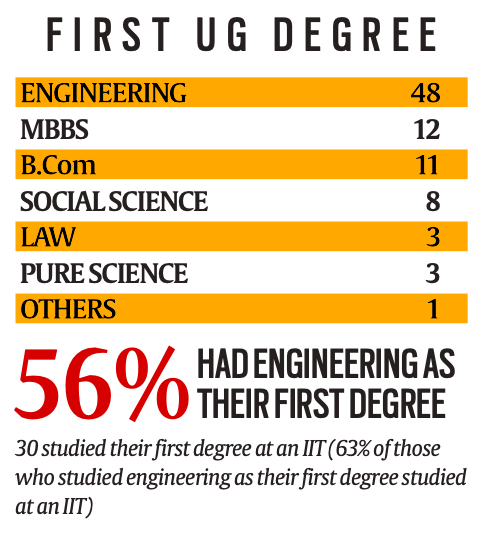
(7/n)
(8/n)
In hindsight, Lekshmi V (29) feels she should have studied Commerce at UG level instead of engineering
(9/n)
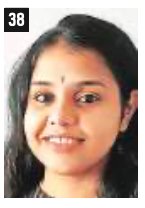
(10/n)
Honestly, it was much harder to locate former toppers than I imagined. Not everyone is on social media, it turns out.
(11/n)
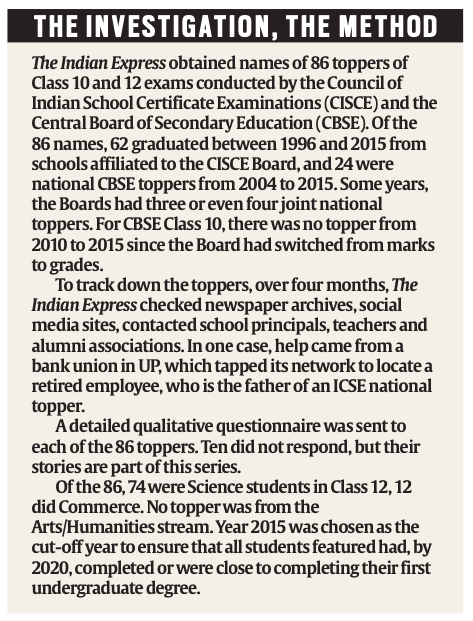
** To the office bearer of a bank union in UP who tapped his network to help locate a retired employee who is the father of an ICSE national topper
(12/n)
And many more ❤️
(13/n)
Link: https://t.co/FjzNLAB6Sz
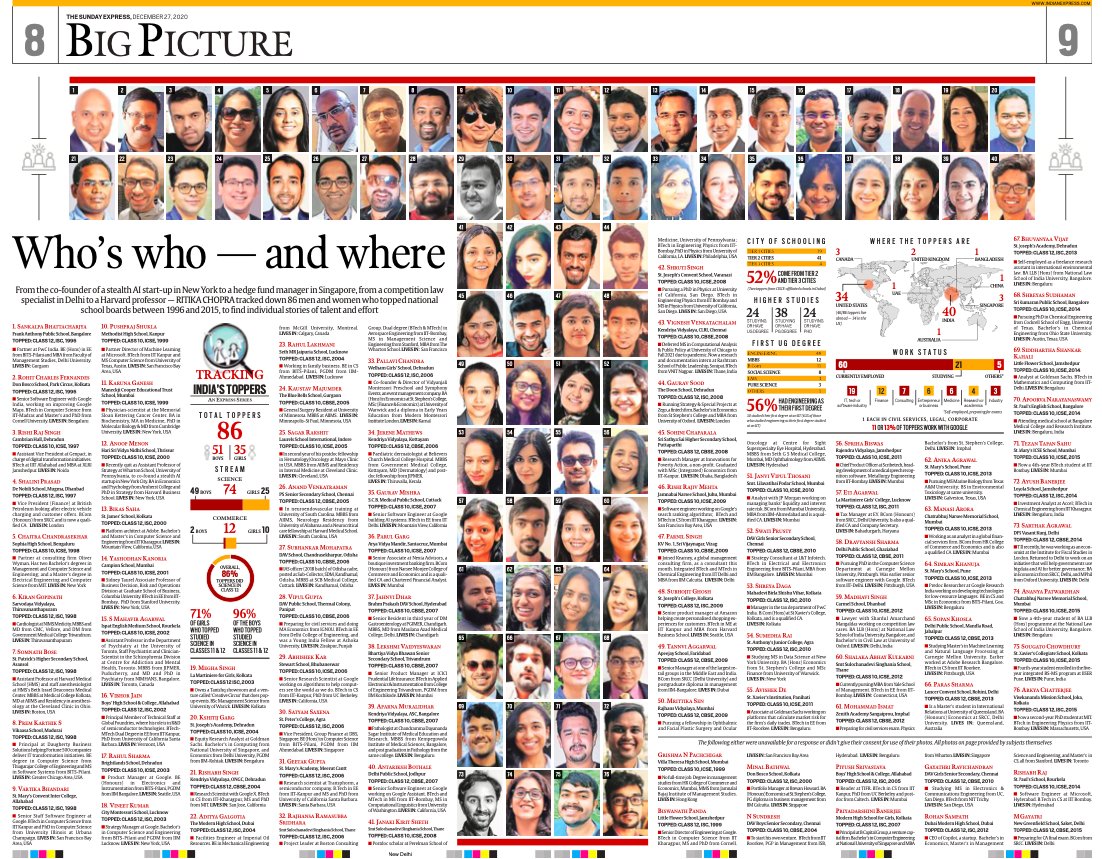
More from India
Some readers have been asking what #India2030 is all about.
Here’s a chapter-by-chapter thread on the 20 forecasts by 20 thought leaders on 20 themes that will define India in the 2020s.
1/n
Chapter 20 of #India2030 by @davidfrawleyved talks about how the Civilizational Resurgence of India will reconnect its ancient past to ride into a dharmic future
2/n
Chapter 19 of #India2030 by @devdip tells us what the new idea of Nationalism in the 2020s will be — an integral union of the nation with the self
3/n
Chapter 18 of #India2030 by @sandipanthedeb examines how ideologies and technologies will intrude into and redefine Friendships
4/n
Chapter 17 of #India2030 by @authoramish studies the Soft Power of India and says its global influence will be through the confluence of materialism and spiritualism
5/n
Here’s a chapter-by-chapter thread on the 20 forecasts by 20 thought leaders on 20 themes that will define India in the 2020s.
1/n
Delighted to announce the forthcoming release of my fifth book \u2014 #India2030: The Rise of a Rajasic Nation.
— Gautam Chikermane (@gchikermane) January 13, 2021
It hits the bookstores on 25 January.
Gratitude to my contributors and @PenguinIndia for partnering this adventure. pic.twitter.com/I0SdQk19JG
Chapter 20 of #India2030 by @davidfrawleyved talks about how the Civilizational Resurgence of India will reconnect its ancient past to ride into a dharmic future
2/n
Chapter 19 of #India2030 by @devdip tells us what the new idea of Nationalism in the 2020s will be — an integral union of the nation with the self
3/n
Chapter 18 of #India2030 by @sandipanthedeb examines how ideologies and technologies will intrude into and redefine Friendships
4/n
Chapter 17 of #India2030 by @authoramish studies the Soft Power of India and says its global influence will be through the confluence of materialism and spiritualism
5/n
Hindutva does not belong to Modi nor his party, it belongs to the people as a unifying, decolonial ideology similar to pan-Africanism or Yugoslavism.
His own brand of "positive secularism" is even milder - deepening special rights and welfare schemes for religious minorities.
After the disbanding of the Hindu Mahasabha and Jana Sangh, Hindutva as a political ideology does not even exist, except as a bogeyman in the minds of the Anglophone elite.
Even the BJP gave up Hindutva for civic nationalism, Gandhian socialism, and positive secularism in 1980s.
Under Modi, there has been compete policy continuity on minority rights and welfare from the Congress era, with little to no "Hindutva agenda" coming to see the light of day.
The most radical policy they can dream of is religion-neutral laws and equal rights for equal citizens.
Hindutva was essential in forming a national consciousness, but was abandoned with time. The modern BJP refuses to self-identify as a Hindutva movement, adopting moderates like Sardar Patel, Deendayal Upadhyay, and JP Narayan as their icons, rather than Savarkar or the Mahasabha.
When they say Hindu Rashtra, all they mean is an "Indic polity".
When British India was partitioned into a Muslim homeland and a Dharmic homeland, one state became a 'Ghazi' garrison state, and one the successor state to the Indic
His own brand of "positive secularism" is even milder - deepening special rights and welfare schemes for religious minorities.
I'm not entirely comfortable with Modi's "Hindutva".
— Onye Nkuzi (@cchukudebelu) February 2, 2021
I know many of my Indian followers will come at me, angrily - but let me just say this out.
I'm not sure it is a great model for democracy in a diverse, multi-cultural developing nation.
After the disbanding of the Hindu Mahasabha and Jana Sangh, Hindutva as a political ideology does not even exist, except as a bogeyman in the minds of the Anglophone elite.
Even the BJP gave up Hindutva for civic nationalism, Gandhian socialism, and positive secularism in 1980s.
Under Modi, there has been compete policy continuity on minority rights and welfare from the Congress era, with little to no "Hindutva agenda" coming to see the light of day.
The most radical policy they can dream of is religion-neutral laws and equal rights for equal citizens.
Hindutva was essential in forming a national consciousness, but was abandoned with time. The modern BJP refuses to self-identify as a Hindutva movement, adopting moderates like Sardar Patel, Deendayal Upadhyay, and JP Narayan as their icons, rather than Savarkar or the Mahasabha.
When they say Hindu Rashtra, all they mean is an "Indic polity".
When British India was partitioned into a Muslim homeland and a Dharmic homeland, one state became a 'Ghazi' garrison state, and one the successor state to the Indic

